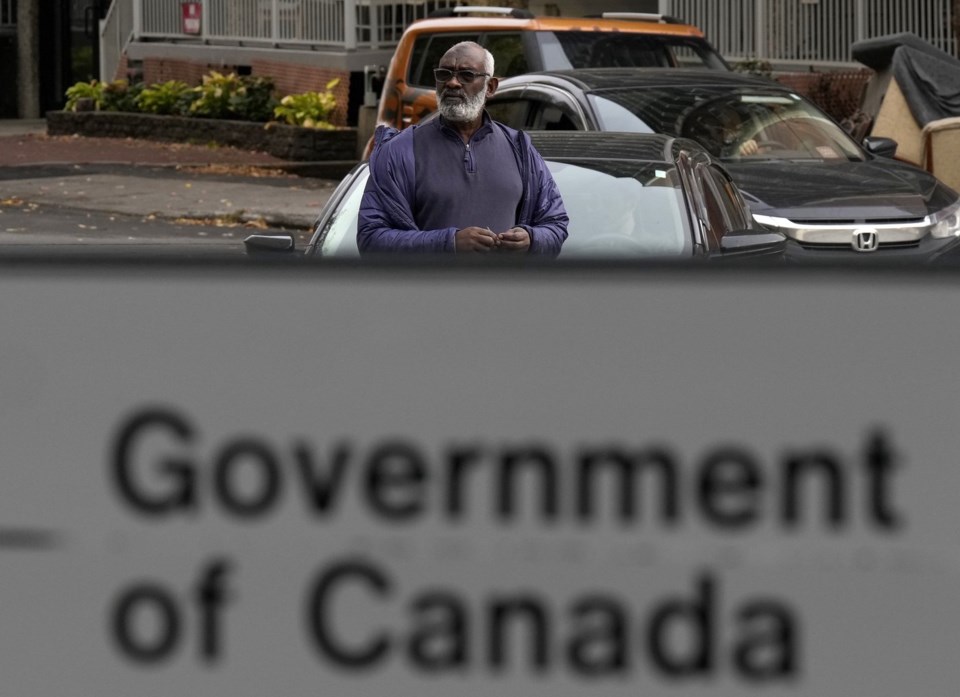OTTAWA — Former foreign minister Lawrence Cannon says he denied an emergency passport to Abousfian Abdelrazik in 2009 because he considered the Montreal man a possible threat to national security.
Cannon told a Federal Court hearing Tuesday he did not want Abdelrazik to return to Canada from Sudan and "put any 91Ô´´s in jeopardy."
The Sudanese-born Abdelrazik settled in Montreal as a refugee and became a 91Ô´´ citizen in 1995.
During a 2003 visit to his native country to see his ailing mother, he was arrested, imprisoned and questioned about suspected extremist connections.
Abdelrazik, who denies involvement in terrorism, says he was tortured by Sudanese authorities during two periods of detention.
He is suing the 91Ô´´ government, claiming officials arranged for his arbitrary imprisonment, encouraged his detention by Sudanese authorities and obstructed his repatriation to Canada for several years.
The suit also names Cannon, Conservative foreign affairs minister from October 2008 to May 2011.
Federal lawyers argue Abdelrazik is an author of his own troubles, saying Canada did not urge Sudan to keep him in detention or mistreat him, or create a risk that these things might happen.
Abdelrazik's second release from Sudanese custody came in July 2006. However, his inclusion on a United Nations security watch list complicated his efforts to return to Canada. At various times he was also on U.S. and 91Ô´´ no-fly lists.
In response to a query from Canada's foreign ministry, the 91Ô´´ Security Intelligence Service and the RCMP said in November 2007 that neither agency had current and substantive information to support Abdelrazik's continued inclusion on the UN list.
But Abdelrazik remained stuck in Sudan.
In April 2008, he sought safe haven at the 91Ô´´ Embassy in Khartoum. He lived there in makeshift conditions for over a year.
91Ô´´ officials stated on several occasions the federal government would issue him an emergency passport if he were able to arrange air passage to Canada.
In March 2009, Abdelrazik obtained a ticket to Canada for the following month.
A March 12, 2009, email message filed in court indicates Cannon's office was questioning the authority to issue an emergency passport to Abdelrazik while he was on the UN list.
Cannon seemed to know little about the inquiry, suggesting one of his staff was seeking more information, "as much as we were all looking for information."
In early April 2009, Cannon refused Abdelrazik an emergency travel document under a section of the 91Ô´´ Passport Order that said he could refuse or revoke a passport if "such action is necessary for the national security of Canada or another country."
Cannon told the court Tuesday that responsibility for national security is one of the important roles a minister plays.
"I took that responsibility very seriously," Cannon said. "I did not want to put any 91Ô´´s in jeopardy or have Mr. Abdelrazik come back to Canada and pose a threat to the security and livelihood of a number of 91Ô´´s."
Paul Champ, a lawyer for Abdelrazik, said during cross-examination of Cannon that Passport Canada had been quite ready to issue the document before the minister's decision.
"I'm suggesting someone from your office pumped the brakes and said, 'Wait, do not issue that, because Mr. Cannon wants to review it. I'm suggesting to you, that's what happened."
"I can't confirm what you're suggesting," Cannon replied. "I don't know."
Abdelrazik has told the court the passport refusal was like "a mountain falling down on my head," causing great distress.
He returned to Canada in late June 2009 after a judge ruled Ottawa violated his Charter right to enter Canada in denying him a temporary travel document.
This report by The 91Ô´´ Press was first published Dec. 10, 2024.
Jim Bronskill, The 91Ô´´ Press



